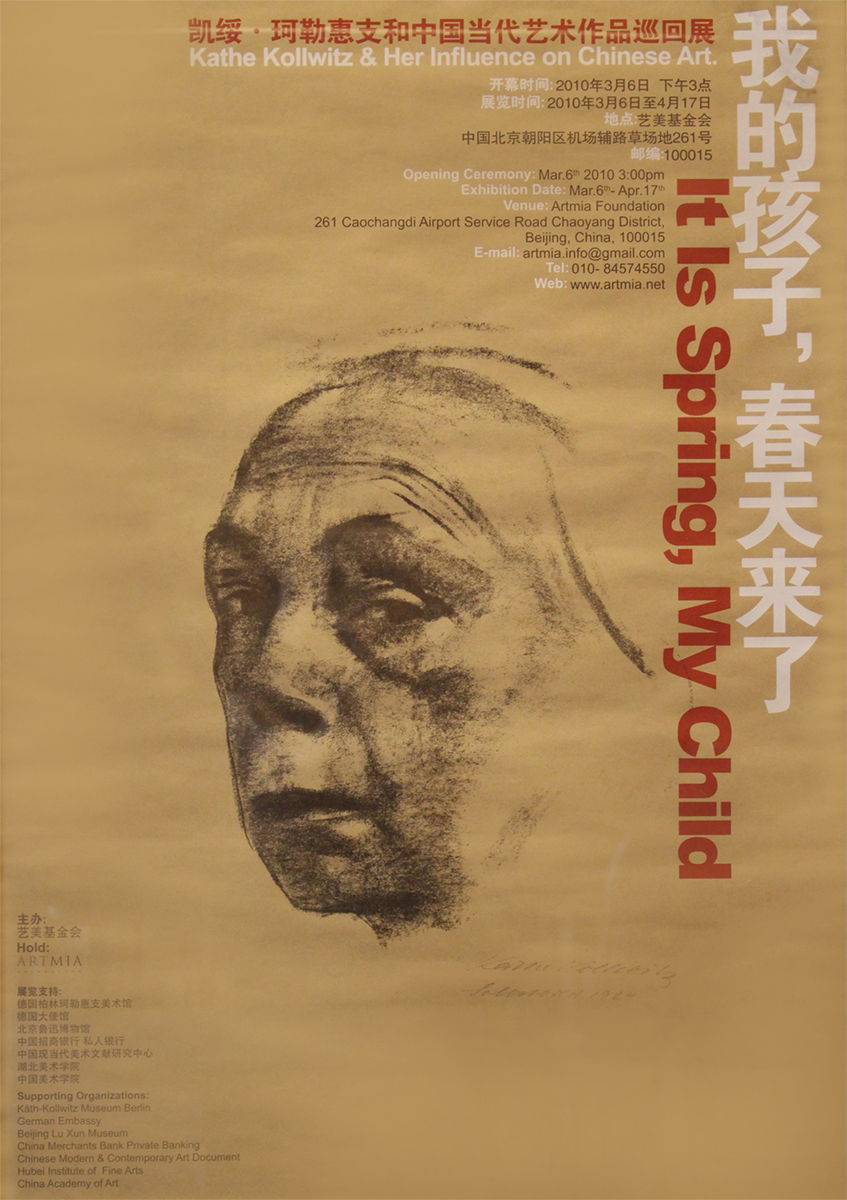LECTURE
on March 14, 2024
at 19.00
Entrance 5,00 euros | reduced 3,00 euros
The reception of Käthe Kollwitz in Asia
The work of Käthe Kollwitz is also highly regarded outside Europe. In Asia, the unmistakable language of her graphic works left a lasting impression.
It is mainly thanks to the Chinese writer and intellectual Lu Xun (1881-1936) that Käthe Kollwitz’ art found its way to China. In the 1930s, he published numerous works by the artist and helped her name to achieve great renown in China.
Lu Xun is considered the founder of modern literature in China. However, he also had a passion for visual arts. In addition to traditional Chinese prints, he enthusiastically collected modern European works, which he published in several illustrated books. These were very popular with the progressive Chinese youth, especially young artists. As a result, traditional Chinese woodblock printing received important impulses that accelerated its development towards modernity.
Lu Xun publicized Kollwitz’s work in publications and exhibitions. He was particularly enthusiastic about the revolutionary messages in her prints. In July 1936, shortly before his death, he published an art book with graphic works by Käthe Kollwitz, for which he also wrote the foreword.
Lu Xun understood Kollwitz’s art. The times in which they both lived were characterized by catastrophes, poverty, war and suffering. Lu Xun therefore characterized the artist’s work as follows:
“If you look through this Florilegium, you will come to realize that Kollwitz, motivated by her deep maternal love, is protesting and fighting with sorrow and anger for the people who suffered humiliation and hurt, as her subjects mainly cover need, hunger; homelessness, disease, and death, sometimes cry, struggle, union and revolt as well.“
(Lu Xun and Kollwitz’s Prints, S. 129; in: Käthe Kollwitz. Her Art and Influence on Chinese Art, 2009)
The topic of Kollwitz and Asia is so diverse that Southeast Asia expert Werner Kraus (*1944) will focus entirely on the artist’s impact in China in his lecture on March 14, 2024. This will be followed by a second lecture on November 14, 2024, focusing on Indonesia and Pakistan.
Dr. Werner Kraus studied Southeast Asian Studies at the South Asia Institute of the University of Heidelberg and at the Modern Indonesia Project of Cornell University, Ithaca, New York. In 1984, he co-founded the Chair of Southeast Asian Studies at the University of Passau. Kraus is currently director of the Centre for Southeast Asian Art, a private research and documentation center.

